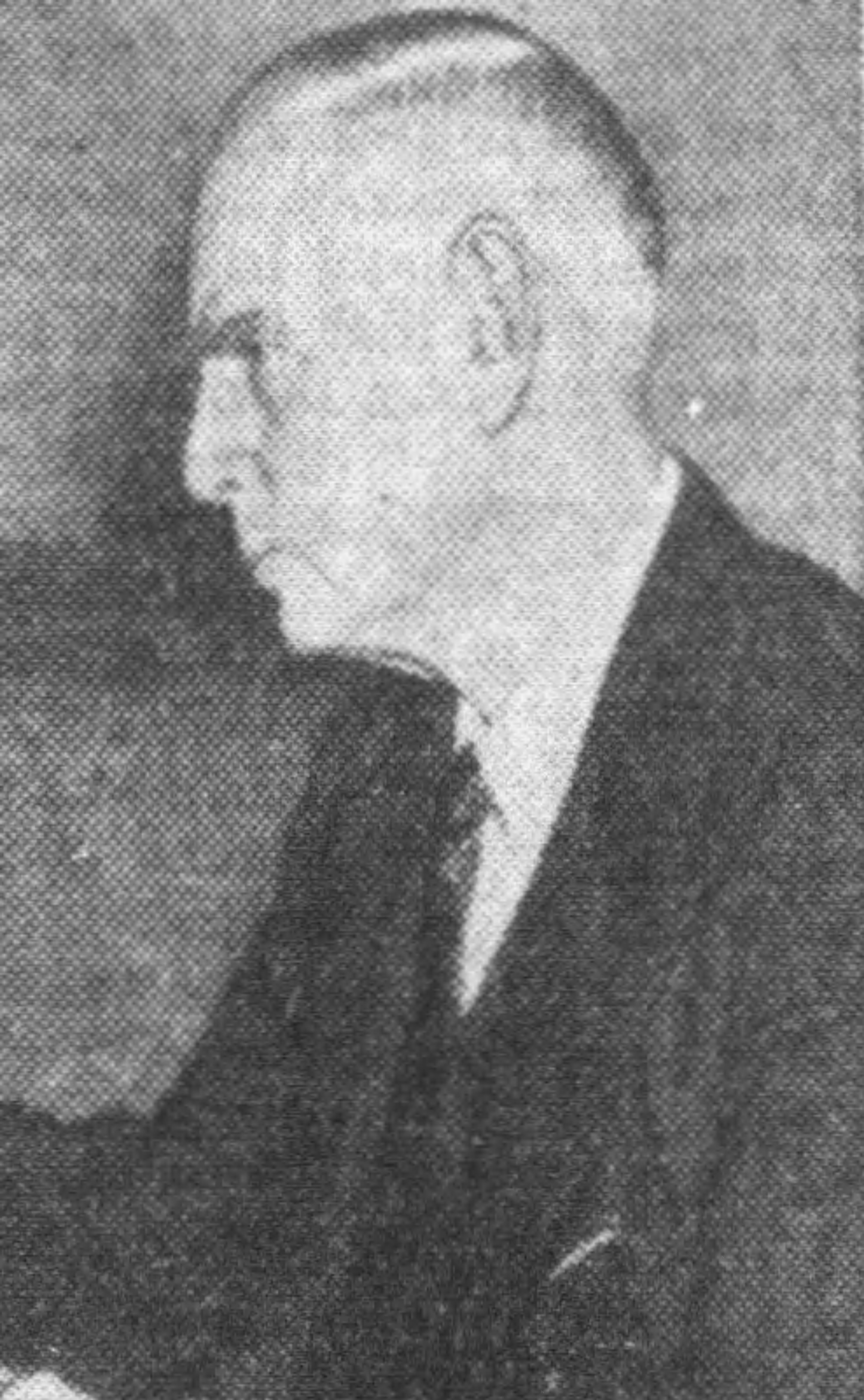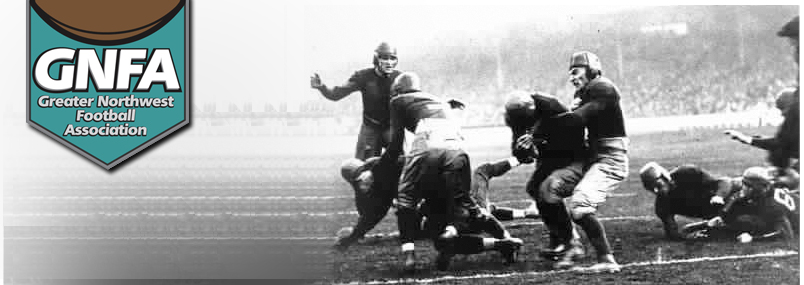|

Homer Franklin Cooke Jr.
Owner
Enumclaw Silver Barons (1934 - 1948)
Inventor: National College
Sports Statistics
Statistician (1935-1973)
College football was invented in 1869,
but there are almost no reliable statistics on the game prior
to 1937. Not until a slight-of-build man from Seattle,
who was generously billed as 5'6" and 120 lbs came
along.
Homer Cooke, co-owner of Enumclaw's
Silver Barons football team heard 1930's radio accounts about
Sammy Baugh being the best football player in the nation and
asked himself "How do we really know?" So, in 1935 he
convinced the Northwest Football League owners to track
statistics of their games and submit them to him for
publication and he would compile the stats and issue them to
the AP and UP. This two year experiment saw every
newspaper of consequence in the Northwest report the exploits
of Northwest League players, many of whom were ex-collegiate
stars at Washington, Washington State, Gonzaga, Oregon and
Oregon Tech, while others were local high school standouts
whose family names were deeply rooted in the communities which
came out by the thousands and on train rides from Portland to
Seattle to Spokane to watch these early semi-pro
games.
In 1937, he had worked out the bugs and
was ready to launch the program nationally. Typing on
the letterhead of the Silver Barons, Homer wrote to the
nation's top colleges, asking them to send him statistical
roundups for the next season. Sportsfolio reported that
only 25 publicists said they could supply Cooke with even part
of what he wanted, but he was not discouraged. He
had gained the support of Joe Petritz at Notre Dame, Fielding
Yost of Michigan and the chair of the NCAA Rules
Committee. He asked again and by the end of the season
he had 78 schools from coast to coast.
By then, Cooke also had a company:
the American Football Statistical Bureau.
Four years later, the 1941 Official
Football Guide published by A.S. Barnes of New York included
"The National Leaders," with credit given to the
AFSB.
The 1943 Guide featured Cooke's first
statistical analysis ("Flames of War Singe Record
Pages"). "For a half dozen years," said the editor's
note, "the American Football Statistical Bureau has served
collegiate football as it's national 'clearing house' of
official facts and figures."
In 1946, the bureau began receiving
financial assistance from the NCAA to help support the
venture, but was revoked in 1949 due to the cost of
implementing the Sanity Code and A.S. Barnes decision
to no longer publish the guides and rule books.
Cooke convinced the NCAA that his National Collegiate
Athletic Bureau could produce the guides at a profit with
the NCAA as the publisher; this they did for the next 24 years
until his retirement. In 1959, the NCAA
purchased the NCAB in it's entirety and has operated it
ever since.
Cooke was profiled in a 1948 article in
the now-defunct Sportsfolio magazine, and in 1958, Sports
Illustrated quoted him extensively in an article about
statistics.
In 1959 Cooke was awarded the Jake Walsh
Award for outstanding contributions in media to
intercollegiate athletics. (ESPN's Lee Corso was awarded
it in 2011, and Dick Vitale in 2001).
And oh by the way, this all took place
while Enumclaw, under Cooke's ownership was twice,
Northwest Champions and had a 41-13-6 record from 1934 -1941
when war broke out.
Where would today's Sports Writers,
Draft Analysts, and Television Play-By-Play commentators be
without the personal undertakings of a diminutive semi-pro
football owner from Seattle nearly 80 years ago? Today,
some programs have as many statisticians as they do coaches on
game day.
From one dreamer in the semi pros
with a vision, a plan and the tenacity to make
things happen has come one of the largest mechanisms in
sports history...the compiling of unending statistical
analysis for everything from projecting recruiting or draft
status of future stars, to how much money gamblers will wager
on games, to your office fantasy league.
Homer F. Cooke Jr. left his mark not
only on the Northwest but on an entire nation.
|
|
|
|
|
Excerpts
and passages include those published by David Pickle,
member of IFRA. | | 


